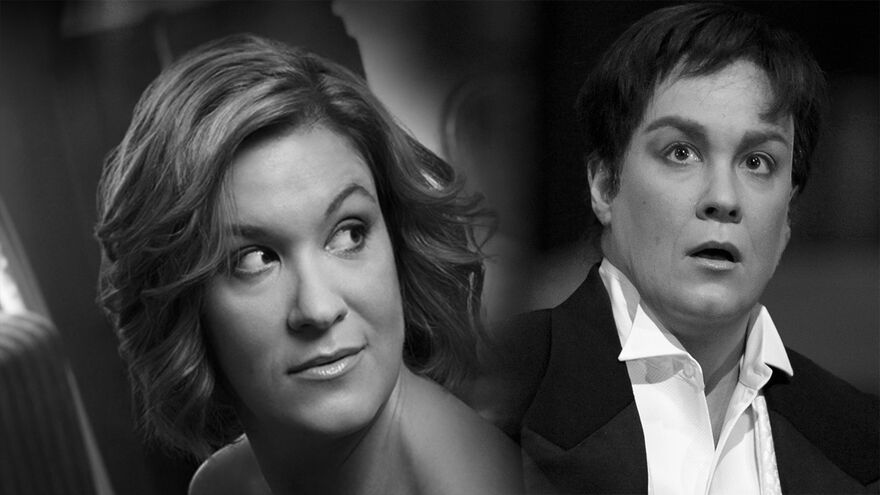
Director Susannah Waters on Being Both...
Being Both is an original production commissioned by Brighton Festival, directed by Susannah Waters and starring renowned mezzo-soprano Alice Coote. Inspired by Handel’s ‘bravura, amazing, profound’ arias and his ‘incredible compassion for human foibles’, Being Both curates the richest moments from Handel’s repertoire, in order to explore the complexities of gender in a modern context.
The production brings together vocals from Alice Coote, the world-class English Concert Orchestra led by Harry Bicket, and visual references from Ali Smith’s book How to be Both in a beautiful and thought-provoking meditation on what it is to be male, female and everything in-between.
We chatted to Susannah about the complexities of gender, her love affair with Handel, and how the orchestra in Being Both will be part of the action.
Susannah Waters on…
…The role of gender in Being Both
“Really, what we’re doing is trying to explore the whole hugely complex subject of gender and the world as it is today and how we’re affected by our own sense of gender: how masculine or feminine we feel we are and if that is a bit of a mismatch with how we’re meant to be, or how our job asks us to be. Also, very much thinking about how an audience sitting in a theatre is affected by gender: by someone’s costume, or the way they look and if someone costumed like a man is singing those words. If someone who has the appearance of a woman is singing those exact same words, they’re very different and they have very different connotations, even if it’s the exact same text.”
…Handel
“All the music is by Handel which is, of course, the best starting point in the world. I keep saying to Alice that there are some arias that are almost unbreakable in terms of the director screwing them up, or anyone screwing them up. They’re like Shakespeare: there are some pieces in the world that you can do almost nothing bad to, because they are infinitely playable and so full of richness. So we’ve got quite a lot of those really bravura, amazing, profound arias in the piece. Harry Bicket was saying yesterday, it’s kind of the greatest hits of Handel that we’ve collected. It’s really, actually, the pieces that Alice and I really wanted to explore and she wanted to sing.
He’s much above in terms of humanity, and understands everyone’s weaknesses and strengths and courage. For me, that fluidity is in his music; that compassion. He was very much a theatre maker. Like Shakespeare, he would nab a bit of music from that thing he’d written twenty years ago, and put it in this bit. A lot of the pieces were very piecemeal: recycling bits of music, recycling bits of ballet and sticking it here, and turning that into an aria. You never feel that it’s just kind of, lazy un-thought through music. He was very much a man of the theatre. He felt happiest in that theatrical milieu, in the middle of all those people that create an opera.”
…On working with Harry Bicket and the English Concert Orchestra
“I’m such a fan of this orchestra. I’ve gone to see them in concert, doing concert performances of operas. The last time I saw them, doing Alcina at the Barbican, it was an amazing line-up of singers, but I spent a lot of my time watching the orchestra, because they are so engaged when they play. Sometimes you go and see orchestra concerts and the orchestra look a bit jaded, they look a bit kind of ‘another show’. The English Concert Orchestra are just in their bodies, they’re so with the music, so in our show they’re very much onstage. I’m bringing forward some of the soloists to the forestage to be part of the action with Alice. I really wanted them to be an equal part of the visual show, so they are very much there on stage. They’re just fantastic, for me they’re my favourite Baroque orchestra around – just amazing players.”
